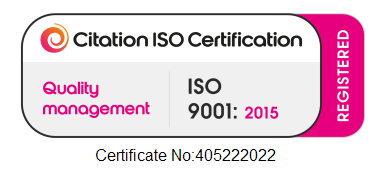Contact centres are crucial for communication, customer service, and data management. Data breaches loom large, and regulations demand accountability, particularly in the UK, where laws like GDPR govern personal information handling. Therefore, it’s vital to secure data confidentiality and integrity in contact centres.
Types of Data Security
Hardware Security: In UK contact centres, hardware security is important for protecting physical devices, servers, workstations, and infrastructure. Strict access controls and monitoring protocols are used to ensure robust hardware security.
Software Security: Software security, like encryption, firewalls, and antivirus software, is vital for protecting contact centres from cyber threats. Regular updates are essential for addressing vulnerabilities and preventing breaches.
Legal Security: Compliance with regulations like GDPR is essential for maintaining trust and credibility in UK contact centres. Non-compliance can lead to severe penalties and damage an organisation’s reputation, highlighting the crucial role of legal security.
So, how can contact centres maintain compliance and uphold data integrity in alignment with regulations like GDPR? Legal compliance is not just a box to tic, it’s a fundamental aspect of protecting sensitive information and maintaining customer trust. Let’s explore how contact centres can navigate the regulatory landscape while strengthening their security measures.
Employee Training and Awareness
It is essential to ensure that all members of staff are knowledgeable about data security protocols and best practices. This can be done by conducting regular training sessions and simulated scenarios. Doing so helps to create a culture of vigilance and accountability among employees. This strengthens the overall security posture of the contact centre.
Quality Control Measures
To ensure compliance with data security standards, contact centres must implement both training and quality control measures. Thorough call monitoring is necessary to assess the performance of agents while also ensuring their compliance to security protocols. Conducting regular reviews with staff is also important to guarantee that security and quality remain top priorities.
Mobile Device Policies
Personal devices can make it difficult to distinguish between personal and professional boundaries. Therefore, it is crucial to have clear policies in place that prohibit the use of personal phones at workstations. When staff are handling sensitive data, it’s best practice for their personal mobiles to be kept away, either in their bags at all times or within staff lockers.
Data security is crucial for contact centre operations in the UK. Implementing robust security measures covering hardware, software, legal compliance, and employee awareness is vital for maintaining operational integrity and customer trust. This builds resilience and protects sensitive information, ensuring client loyalty in an interconnected world.
So, what does your contact centre do to ensure data security and compliance with regulations? We’d love to hear about your strategies and challenges in safeguarding sensitive information whilst delivering exceptional customer service.
At BDM Talk, we’re passionate about helping businesses navigate complex contact centre operations. With our tailored solutions and expertise, we can assist you in enhancing data security, improving efficiency, and driving customer satisfaction. Get in touch with us today to learn more about how BDM Talk can support your contact centre needs and propel your business forward.



